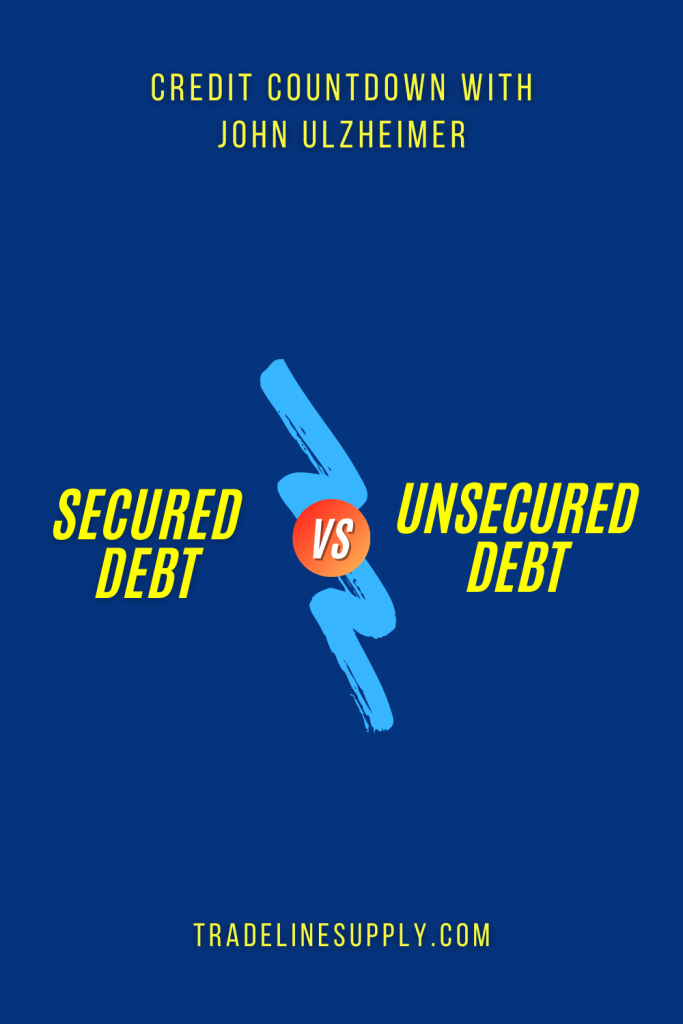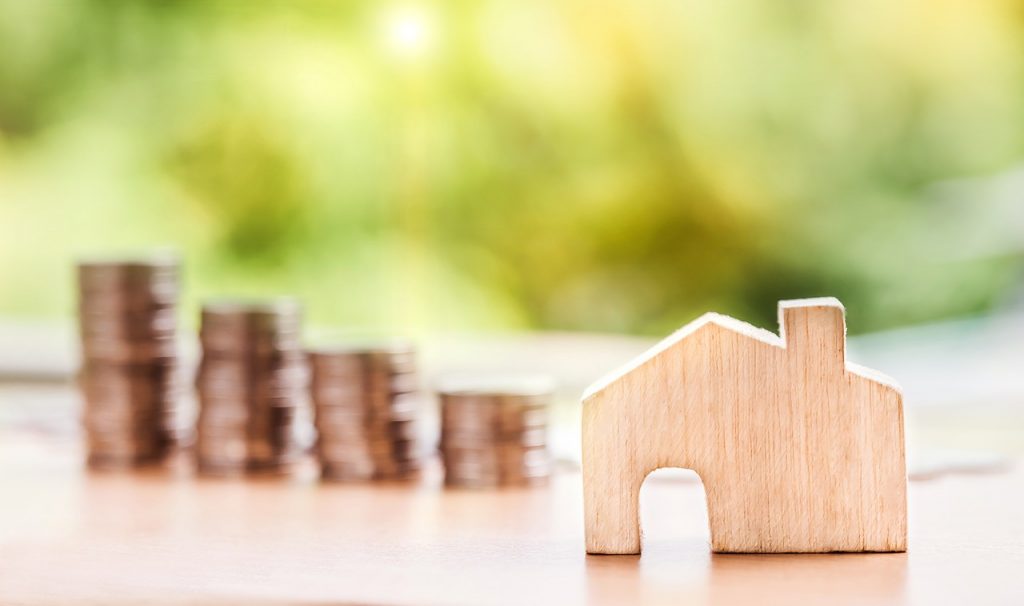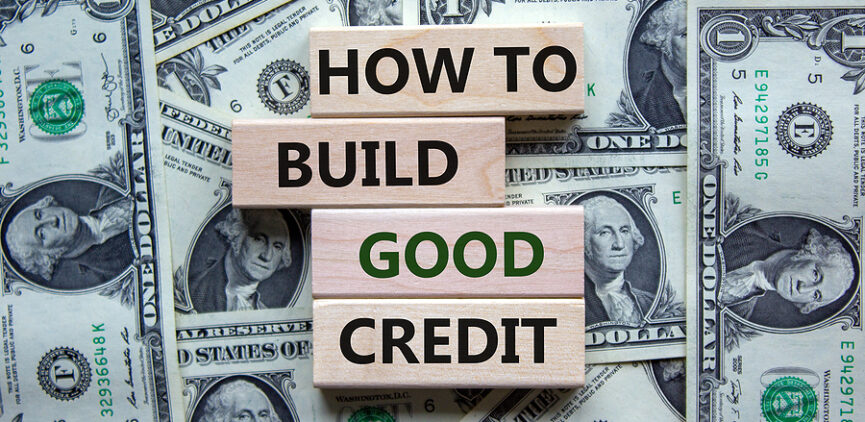Secured vs. Unsecured Debt: What Are the Pros and Cons? – Credit Countdown

In a Credit Countdown video on our YouTube channel, credit expert John Ulzheimer explains the benefits and drawbacks of each type of credit and how different types of credit can affect your credit score. Read what he has to say below and watch the video on our channel!
What Is Secured Credit?
Secured credit is a form of credit that is backed by some sort of physical asset as collateral. If the borrower defaults on a secured loan, the lender can take the asset in order to recoup the loss.
Examples of Secured Credit
When you take out an auto loan, the loan is secured by your vehicle. Technically, the lender is the owner of the car until you finish paying off the debt. If you fail to repay the loan as agreed, the lender can take back the car using the process of repossession.
Similarly, when you take out a mortgage, that loan is secured by your home, and the bank still “owns” the home until you pay it off. In this case, not paying your mortgage can lead to the bank foreclosing on your home, meaning that they evict you from the home and then can sell it to someone else.
Pawn shop loans and title loans are also examples of secured loans.
While most credit cards are typically unsecured, secured credit cards do exist for consumers who may not be able to qualify for unsecured credit cards due to bad credit or a lack of credit history. With a secured credit card, you make a security deposit that counts toward your credit limit that the lender can keep in the event that you are not able to make the required payments on your credit card.
Mortgage loans are secured by your home.
What Is Unsecured Credit?
Unsecured credit is credit that does not have a physical asset as collateral, so the lender cannot take back an asset if you default on the debt.
Examples of Unsecured Credit
A student loan is an example of an unsecured loan because there is no material asset that can be taken away if you do not pay your student loans. Student loans are used to pay for an education, and obviously, the lender cannot “take back” the education you have already received.
Credit cards are generally extensions of unsecured credit, except in the case of secured credit cards, as we described above.
Secured Credit
Unsecured Credit
Auto loans
Unsecured credit cards
Mortgage loans
Student loans
Home equity lines of credit
Unsecured personal loans
Secured credit cards
Unsecured lines of credit
Motorcycle loans
Boat loans
Pawn shop loans
Title loans
The Impact of Secured and Unsecured Debt on Your Credit Score
Secured and unsecured accounts are treated equally by credit scoring models, according to John. You are not penalized or rewarded by credit scores based on your accounts being unsecured or secured.
Different types of accounts are still treated differently by credit scores due to other factors (e.g. credit cards are treated differently than installment loans), but this particular factor does not play a role.
Secured Credit Cards: Use Them Carefully
Secured credit card accounts are commonly used by consumers to establish credit or rebuild their credit after having bad credit. This is a valuable credit-building strategy, but you should be cautious about how much you spend on your secured credit card.
Why? Because secured credit cards often have very low credit limits. That means you can quickly get to a high utilization ratio on the account even from modest spending. For example, if your secured credit card has a credit limit of $500 and you spend $250, you already have a utilization ratio on that account of 50%.
Having heavily utilized credit card accounts can have a significant negative impact on your credit score, so if you’re trying to keep your credit score as high as possible, you’ll want to keep an eye on the balance of your secured credit card and not let it creep too high relative to your credit limit.
Read more: tradelinesupply.com




 Bruce McClary is the Vice President of Communications for the National Foundation for Credit Counseling® (NFCC®). Based in Washington, D.C., he provides marketing and media relations support for the NFCC and its member agencies serving all 50 states and Puerto Rico. Bruce is considered a subject matter expert and interfaces with the national media, serving as a primary representative for the organization. He has been a featured financial expert for the nation’s top news outlets, including USA Today, MSNBC, NBC News, The New York Times, the Wall Street Journal, CNN, MarketWatch, Fox Business, and hundreds of local media outlets from coast to coast.
Bruce McClary is the Vice President of Communications for the National Foundation for Credit Counseling® (NFCC®). Based in Washington, D.C., he provides marketing and media relations support for the NFCC and its member agencies serving all 50 states and Puerto Rico. Bruce is considered a subject matter expert and interfaces with the national media, serving as a primary representative for the organization. He has been a featured financial expert for the nation’s top news outlets, including USA Today, MSNBC, NBC News, The New York Times, the Wall Street Journal, CNN, MarketWatch, Fox Business, and hundreds of local media outlets from coast to coast.